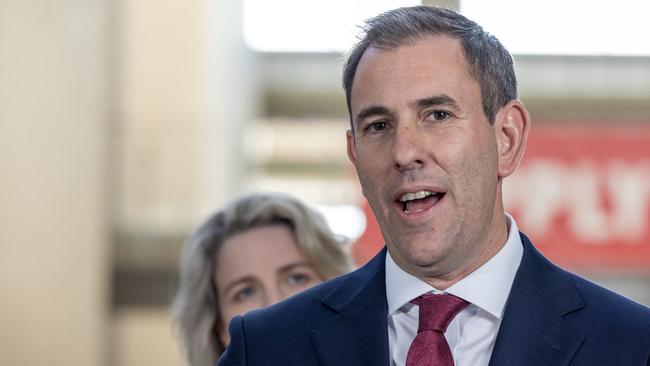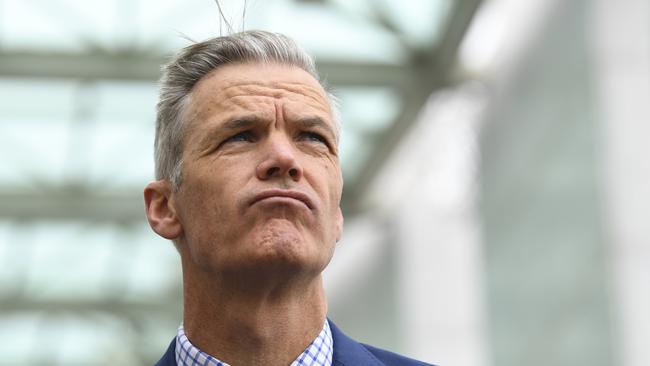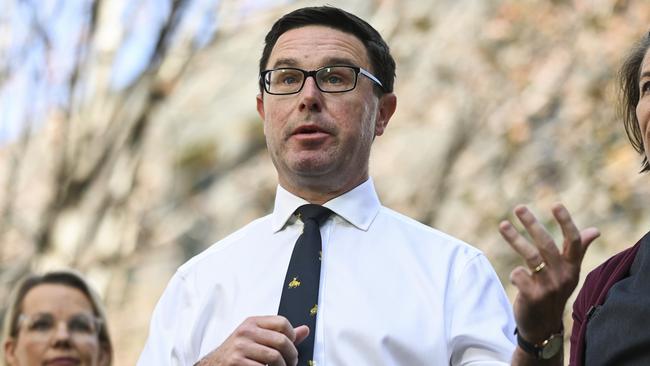Farm leaders slam plans to double tax on self-managed super funds
Farm leaders warn farmers with self-managed superannuation funds could be “disproportionately” affected under a new Labor draft bill.
The federal government has come under fire after pushing on with its controversial plan to double the concessional tax rate on earnings from superannuation accounts worth more than $3 million.
Farm leaders predict the new tax regime could impact almost a third of all Australian farm businesses, while Nationals leader David Littleproud said producers with family farms in their own self-managed super fund would be “hit the hardest” by the proposal.
Treasurer Jim Chalmers said the draft Better Targeted Superannuation Concessions Bill, released on Tuesday, proposes to double the tax rate on unrealised capital gains, or earnings, on high-balance accounts from 15 per cent to 30 per cent.
National Farmers’ Federation chief executive Tony Mahar said SMSFs are commonly used in the industry to manage assets and use agricultural land to provide retirement income.

However, the cyclic nature of farming and the fact many farmers are asset rich and cash flow poor placed them at the mercy of a tax levied annually on any increase in land values above the threshold.
“While exact figures are unavailable, anecdotal evidence suggests that this could exceed 30 per cent of Australian farm businesses,” he said.
He added that “many” farmers will be materially worse off if the policy was introduced, saying that “there is a distinction between the value of an agricultural land asset and its return.”
“While recognising the Government’s efforts to address fiscal challenges, the NFF remains steadfast in its belief the legislation’s potential repercussions on farmers’ livelihoods and agricultural investments must not be disregarded for a quick budget win,” he said.
He called for government to perform a comprehensive assessment of what impacts the rules might have on farming families before legislating the measures, including consulting with farmers.
The average return on agricultural land assets is about 2 per cent.
Land assets are also commonly transferred into a SMSF in succession planning, with the next generation making lease payments to the retiring farmer that becomes their retirement income.
Australian Taxation Office June quarterly data shows SMSFs hold $88 billion in commercial property funds, which includes farms.

Mr Littleproud said taxing unrealised gains would “disproportionately” impact SMSF-held family farms across regional and rural Australia.
“You only have to look at the current year, where property prices have increased but conditions have turned dry, and input costs are at record highs,” he said.
“Farmers may not have the cash flow to pay the tax on the unrealised capital value in their property that was part of a SMSF.”
Treasury modelling also does not include a breakdown on how many primary producers and family businesses might be caught up in the changes.
Commercial properties have been placed in SMSFs to take advantage of generous capital gains tax advantages that will be extinguished by the legislation if introduced.
Self Managed Super Fund Association chief executive Peter Burgess said “in any given year” the new tax could represent a significant proportion or even exceed a farmers annual income.
“Given high land values and modest cash income and the highly cyclical nature of Australian agriculture, including unrealised capital gains in the measurement of earnings is likely to have a disproportionate impact on primary producers,” he said.

In a statement, Mr Chalmers said the “modest adjustment” in the draft legislation would only be applied to future earnings and was designed to “make the system fairer and more sustainable.”
It said the “the 0.5 per cent of people” with superannuation balances above $3 million would still receive tax breaks, “just slightly less generous.”
The changes, which still face Senate scrutiny, would apply to around 80,000 people and raise about $2 billion a year.
Stakeholders said some farm owners may contemplate selling their properties before the rules kick in on July 1, 2025.
Treasury said a change was required to better target those using super as a tax minimisation strategy and for estate planning.



